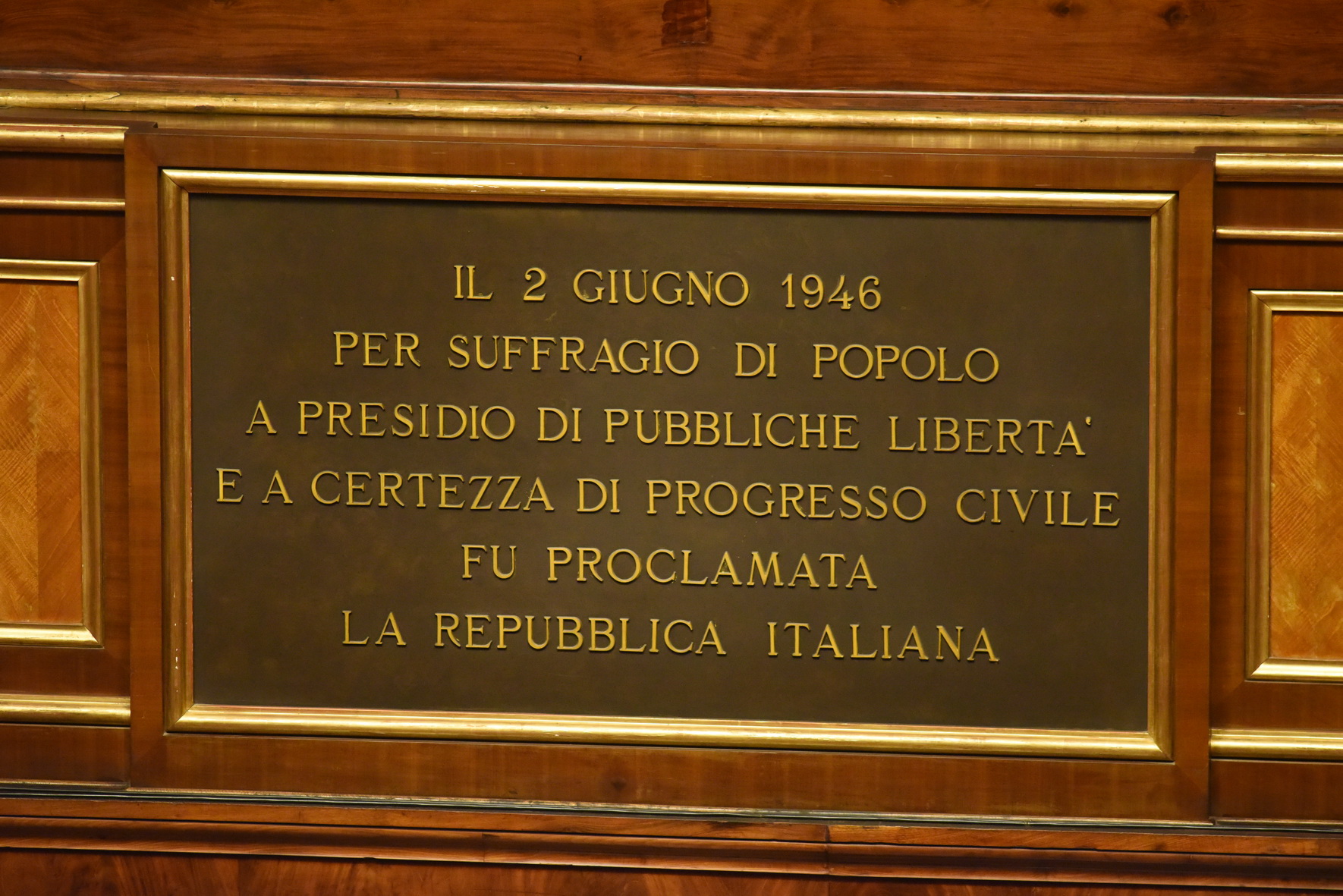Italy - DDL Cirinnà and beyond
Whenever the legal recognition of individual claims is sought in the name of exasperated forms of subjectivism, regardless of whether such claims are attached to a dignified vision based on their compliance with the relational dimension of the human person, thereby denying the existence of a social reality preceding the law that is called to regulate and not to manipulate, we are facing first of all a defeat of the rule of law and of society as a whole.

Over the past weeks Italy has been debating the draft bill on the “Regulation of unmarried couples and civil unions “(known as DDL Cirinnà). The debate under way offers us an opportunity to propose a reflection that, whilst refraining from entering into the heart of this discussion, aims instead to dwell into the institutional and social implications of an increasingly narrow vision of law considered as an instrument of power rather than being valued as a tool capable of accompanying societal unfolding transformations through the integration and harmonization of the subjective and objective dimensions of man, resulting in his being placed at the centre of a grid of relationships involving rights and duties alike.
The starting point of such an analysis consists in the fact that
post-modern legal systems, also owing to a political realm that is increasingly unable to voice societal needs, suffer from an exasperated form of juridical subjectivism resulting from an ever-growing divide between the individual and the State.
In these circumstances, the attempt to contain juridical complexities has been accompanied by the gradual weakening of intermediate social units (that include the family) almost to the point of determining their disappearance, critical to the simplification of societal realities that legislators are called to regulate. The quest for a simplification of the post-modern juridical landscape thus encompasses two opposite poles: on the one side the State, whose legal power tends to be overcome by the will of the holder of sovereign power, whose implementation is increasingly fragmented between national, local and supranational authorities; on the other the individual, object of increasingly customized legislation, whose particular interests yearn to become veritable subjective legal cases protected by the legal system, which in turn is gradually loosing the social dimension of the individual thereby reducing inter-subjective relationships to the level of mere relations with other individuals.
The institutional and social order resulting from this view of the law is, inevitably, characterised by a significantly potestative system consisting in different ways of exerting sovereignty (at national, local and supra-national level) and in a fragmented social reality, marked by prominent individuality. By denying the existence of a relational dimension between the State and the individual such institutional framework becomes rigid, unable to promote individual freedom, to recognize the correlation between rights and duties and, ultimately, poorly inclusive.
On the long run, from the perspective of the legal system, such institutional framework is bound to cause an irreparable divide with social reality.
Moreover, such criticism does not deny the central role of the human person within the legal system. Rather, it leads to the rediscovery – notably also in the recent public debates – of the essential distinction between the individual and the human person. In fact, the concept of the human person allows for the recovery of the social and relational dimension of the individual that led Antonio Rosmini to affim that “the human person incorporates in his nature all the constituents of the law: he is therefore the subsisting law, the essence of law itself.” (Philosophy of Law, I, n. 52, 192).
From this perspective, if the good of man is what is important to us, it is necessary to address the complexity of our reality starting with the recognition of its undeniable dignity, overcoming instrumental and dogmatic views and setting the stage of the debate on a dialectic track centered on rationality. In this effort, as Catholics, we can not but draw from the principles of the Social Doctrine of the Church (CSD) that, as such, “argues on the basis of reason and natural law, namely, on the basis of what is in accord with the nature of every human being” (Benedict XVI, Deus caritas est, 28). Paraphrasing Saint John Paul II (Nuovo millennio ineunte, 51), CSD can help us tackle the complex issues of the present times by adopting a universal approach, capable of speaking to everyone without imposing a religious perspective to non-believers but rather interpreting and spreading the values rooted in the very nature of the human person.
CSD is based precisely on the reaffirmation of the sacred dignity of the human person and the protection of the rights deriving from it, placed within the dynamic intersection between the actions of the individual, of the Christian community and of society as a whole, adopting the perspective of the integral development of the human person. Therefore, by enhancing a dignified vision of rights, capable of putting the human person at the centre of the juridical system, the recognition of the rights of the human person at juridical level stems from human dignity. And from the relational nature of man stems the reaffirmation of a corresponding number of duties.
There ensues that whenever the legal recognition of individual claims is sought in the name of exasperated forms of subjectivism, regardless of whether they are attached to a dignified vision based on their harmonization with the relational dimension of the human person, thereby denying the existence of a social reality preceding the law that is called to regulate and not to manipulate, we are facing a defeat of the rule of law and of society as a whole.